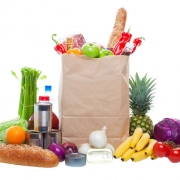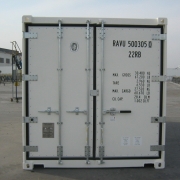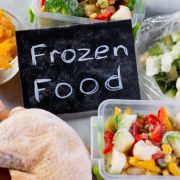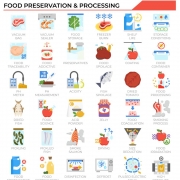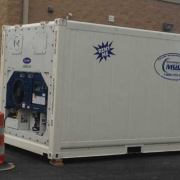5 Foods That You Should Be Refrigerating and 6 That You Shouldn’t Be
When you come home from the grocery store, big bags in your hands and a haul to put up, you might every once in a while look at an item you brought home and thought to yourself, “Wait, does this go in the fridge or the pantry?” It’s quite important to know what foods need to be refrigerated, else you face the risk of getting sick or wasting your food as it slowly rots because it’s not where it’s supposed to go.
Luckily, most staple items are pretty obvious. Fish, meat, and dairy products need a cold environment to keep them edible while canned goods and baking supplies are pantry staples that don’t need the cold to thrive. But in regard to other products, you may have come across varying information in the past, and the fact of the matter is, some foods vary naturally and can be in both environments. There is no lumping “all fruit” or “all root vegetable” together because it’s really a case by case basis, and that’s what we’re here to help clear up!
If you’re looking for rented cold storage for your business, contact us today!
5 Foods That You Should Be Refrigerating
1. Eggs
This one may seem like on of those obvious staple items, but the placement of eggs largely depends on where you get them from and how clean they are! Eggs from the store have been cleaned thoroughly and need to be stored in the fridge to stay edible, but eggs fresh from the nesting box that haven’t been cleaned have a protective coating on them called ‘bloom’ that allows them to stay fresh at room temperature for weeks! Once that coating has been cleaned off, though, the eggs will need to go into the fridge like store-bought ones.
2. Soft Squash
Soft squash refers to zucchini and summer squash – also called yellow squash. These strains of squash don’t have the thick outer skin that winter squash does, so they need to be refrigerated to maintain freshness and prolong the life of the vegetable.
3. Apples
While apples don’t need to be refrigerated, it’s generally recommended to keep them in your refrigerator to preserve their crispness and ward off soft spots.
4. Ripened Food
The cold of the refrigerator tends to slow down the ripening process that is caused by ethylene gas released from fruits and vegetables as they ripen, so the refrigerator is a great place for bananas, avocados, and other fruits that are approaching their peak. Placement is important, though! Don’t store high ethylene-producing items like bananas and avocados with ethylene-sensitive items such as broccoli and lettuce, or you’ll find yourself with a new spoilage issue.
5. “Refrigerate After Opening”
We cheated on this one, because “Refrigerate After Opening” foods exist across the board and include plenty of different foods from different food groups and are shelf-stable until their seal is opened. They can include:
- Cured meats
- Condiments like ketchup, mustard, or soy sauce
- Pure maple syrup
- Refrigerated pickles
- Tortillas
- Baby food
- Pesto
- Most canned goods
The important thing to remember is to read the labels on your groceries! Companies can get in a lot of trouble if they don’t warn consumers of potential risks if they leave an item that needs the cold unrefrigerated. See the official Food Safety Cold Storage Chart for more products and information!
5 Foods That You Shouldn’t Be Refrigerating:
1. Bread
Bread in the fridge results in stale, dry slices at a faster rate!
2. Whole Tomatoes
The cold changes the texture of tomatoes, making them gritty and detracting from their taste.
3. Winter Squash
Nothing bad will happen to winter squash in the fridge, but these beasts takes up a lot of room, and they can last for months when stored correctly in the pantry, so there’s no need!
4. Onion
Onion actually get moldy faster in the fridge because of the additional moisture that exists there. Store these pantry staples in a cool, dry place and away from other fruits and vegetables, since they produce a lot of ethylene gas that will speed up the ripening process!
5. Honey
Honey crystallizes at low temperatures, and having to soak your bottles in a warm bath to de-crystallize every time you’d like to use it isn’t fun. And, due to the unique chemical make-up of honey, it never really goes bad, so keep it on your pantry shelf!
6. Fresh Herbs
Stored in the refrigerator, fresh herbs lose some of their flavor and dry out, since they have a lot of moisture to offer. Keeping them with their stems in a small glass of water will keep them fresher for longer!
Moon Refrigeration offers refrigerated, walk-in portable reefer containers for your restaurant or business with 20 and 40 foot options, world-class performance, energy efficiency, quiet operation, reliability, and PrimeLINE Technology. We proudly serve the Louisville, Southern Indiana, Lexington, and the surrounding regions and also offer dumpster and portable restroom rentals, trailer leasing, grease trap cleaning, and much more! Interested in getting started? Give us a call or visit our website today!


